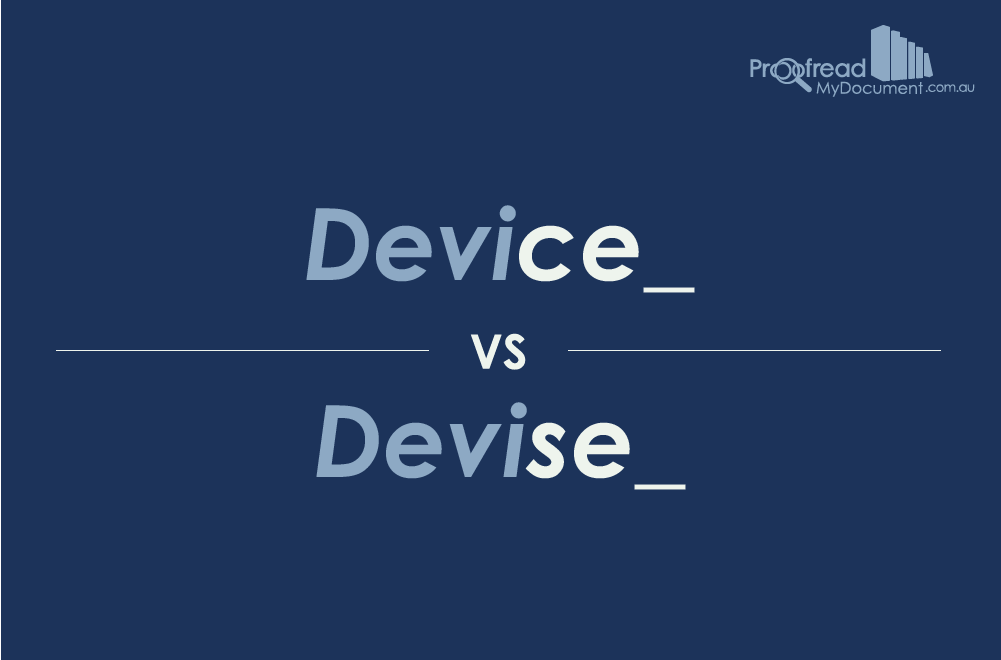The terms ‘device’ and ‘devise’ look similar written down and are derived from the same root word. But unless you’re studying old-fashioned languages, it’s more important to know how we use these words today, since ‘device’ and ‘devise’ have very distinct meanings.
In this post, we untangle their definitions to help avoid confusion.
Device (A Gadget)
The principle meaning of ‘device’ is ‘an object or machine invented for a particular purpose’:
My favourite device is my electric can opener.
Another meaning is ‘a technique or method designed to produce a particular effect’. This sense is still common in literary studies, where ‘rhetorical devices’ are used to invoke specific responses in the reader/listener:
Shakespeare used many rhetorical devices in his work.
Devise (To Plan)
The term ‘devise’ is typically a verb meaning ‘to come up with, plan or invent’:
Find this useful?
Subscribe to our newsletter and get writing tips from our editors straight to your inbox.
The exam is only a week away, so I’ve devised a revision schedule.
Things are a little more complex in legal settings, where ‘devise’ can also mean ‘a gift of land or property bequeathed in a will’. However, unless you’re studying law, you shouldn’t need to use ‘devise’ as a noun like this.
Device or Devise?
People sometimes use ‘devise’ in place of ‘device’ because they sound similar. But once you know the spelling difference, it’s easy to avoid confusion.
The key is to remember that ‘device’ is a noun (a naming word) and ‘devise’ is a verb (an action word). As such:
- If you’re describing an electronic gadget or method of doing something, use the noun ‘device’.
- If you’re describing the action of planning something, use the verb ‘devise’.
It also helps to keep in mind that, if you made a gadget for some specific purpose, you’d have ‘devised’ (i.e. invented) a ‘device’.



